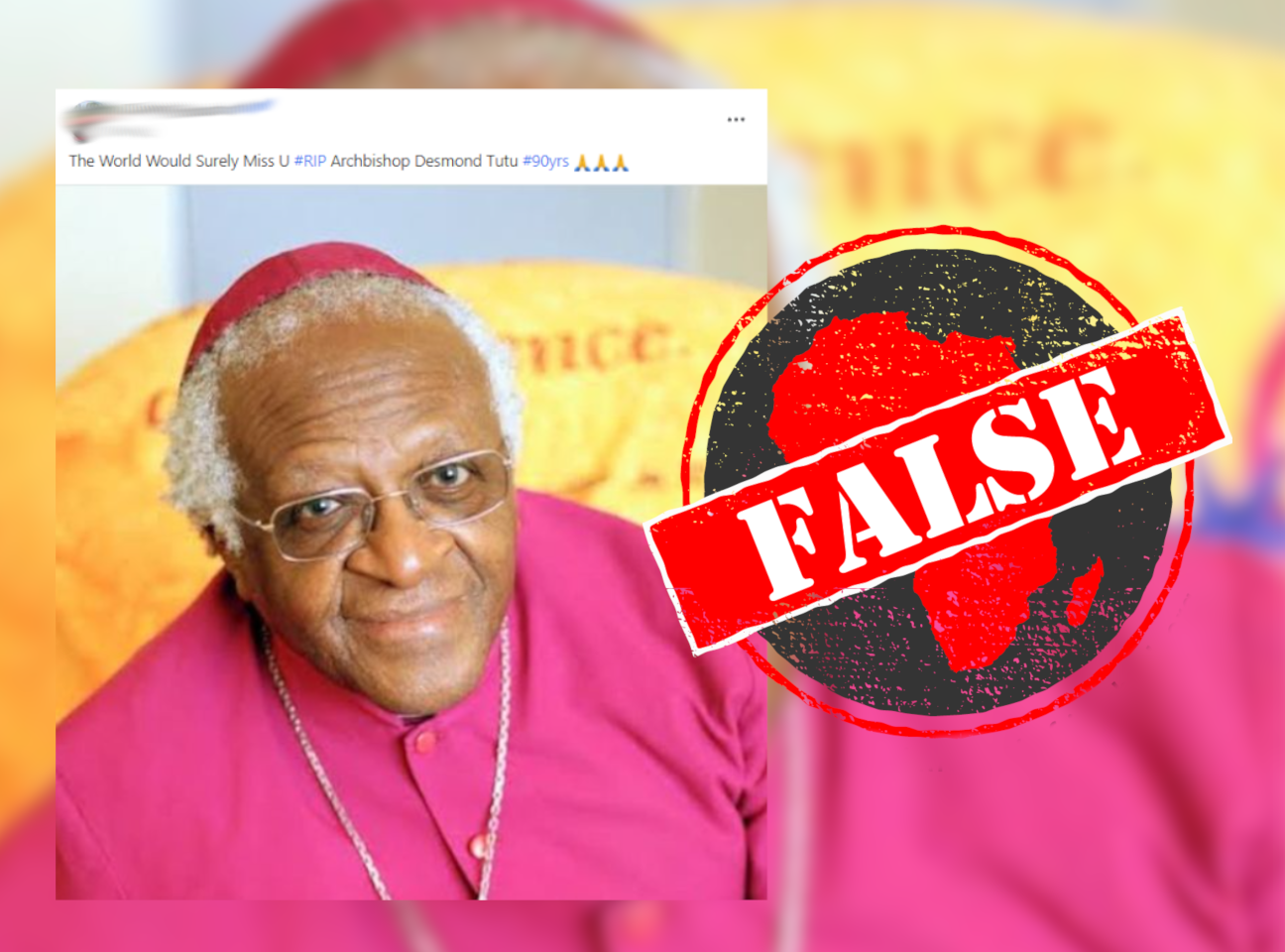On 20 October 2021 a heartbreaking rumour spread across social media in a matter of hours.
Various posts, including a Facebook post with over 37,000 views in 24 hours, claimed that beloved South African Anglican archbishop and Nobel peace prize winner Desmond Tutu had died.
“The World Would Surely Miss U #RIP Archbishop Desmond Tutu #90yrs,” the post read, alongside a photo of Tutu in his familiar purple robes.
Articles on news sites, like Nigeria’s Naija News, made the same claim, saying Tutu’s death had been confirmed by the Anglican bishop of Johannesburg, Stephen Moreo, on Twitter.
Tutu is known for his opposition to apartheid in South Africa. He received the Nobel peace prize in 1984.
But are these claims that “the Arch”, as South Africans affectionately call Tutu, died on 20 October true? We investigated.

Church ‘decries the falsehood being spread on social media’
When Googling for the tweet mentioned in the Naija News article, the results show a tweet from an account with the handle @BishopSMoreo.
But following the link leads to a message that says “this account no longer exists”. According to an article debunking the claim by South African news site Times Live, another tweet was posted on the account before it was deleted that said “this account is a hoax created by Italian journalist Tommasso Debenedetti”.
The Anglican Diocese of Johannesburg also quickly dismissed the rumours of the archbishop’s death: “Social media reports circulating worldwide that quote the Anglican Bishop of Johannesburg, the Rt Revd Dr Steve Moreo, as having said Archbishop Emeritus Desmond Tutu had died, are false and malicious. “
They lamented “the falsehood being spread on social media” and warned people against “fake media reports”.
Several other media outlets also debunked the claim. At the time of writing Tutu is alive, having celebrated his 90th birthday on 7 October.
Republish our content for free
For publishers: what to do if your post is rated false
A fact-checker has rated your Facebook or Instagram post as “false”, “altered”, “partly false” or “missing context”. This could have serious consequences. What do you do?
Click on our guide for the steps you should follow.
Publishers guideAfrica Check teams up with Facebook
Africa Check is a partner in Meta's third-party fact-checking programme to help stop the spread of false information on social media.
The content we rate as “false” will be downgraded on Facebook and Instagram. This means fewer people will see it.
You can also help identify false information on Facebook. This guide explains how.


Add new comment